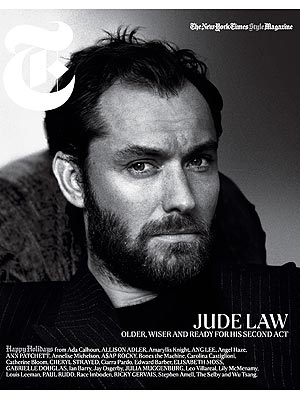LONDON (Reuters) – Britain and Germany may have missed out on a combined $ 1 billion in sales tax since online marketplace eBay picked a tiny Luxembourg office as its base for EU sales, a shift that lawmakers say should now be investigated.
EBay’s nomination of Luxembourg unit eBay Europe Sarl – with a staff of nine – as its provider of services to EU clients allows it to charge customers in Europe a low rate of sales tax, often known as Value Added Tax, helping it to compete against rivals.
However, the unit doesn’t actually receive the money from sales. Instead, eBay said it continues to channel revenues through a Berne-based unit, allowing the company also to benefit from what Swiss tax lawyers say is the most competitive corporate income tax regime in Europe.
EU rules allow companies to establish subsidiaries in Luxembourg and levy VAT at Luxembourg’s low VAT rate on sales to customers across the bloc.
However, the rules also allow individual EU taxmen to challenge any claim to Luxembourg residence, and the right to charge Luxembourg VAT, in their domestic courts, if the taxman feels a Luxembourg-based subsidiary does not have sufficient staff or assets to support its claim to be the true supplier of goods or services.
Tax experts say eBay’s arrangement, which appears to give eBay the best of both income and sales tax worlds, could be open to challenge, and lawmakers in the UK and Germany want their taxmen to investigate.
“I hope that HMRC (UK tax authority Her Majesty’s Revenue and Customs) takes note … and takes prompt action,” said Margaret Hodge, member of parliament and chairman of the Public Accounts Committee (PAC), which monitors government finances.
“I will be seeking assurance that they are, next time we take evidence from HMRC,” she added. Officials from HMRC are due to testify to the PAC in early December as part of the committee’s investigation into tax matters.
Sven Giegold, member of the European Parliament for Germany’s Green Party, said he wanted the German tax authorities to “have a very critical look at this”.
It is common for companies to seek to reduce their tax bills, and a number of multinationals have established bases in Luxembourg so they can charge customers lower levels of VAT.
EBay said HMRC was aware of all its tax arrangements and that it was confident it met all its tax liabilities in the UK and elsewhere.
“In all countries and at all times, eBay is fully compliant with national, EU and international tax rules (including the OECD) including the remittance of VAT to the appropriate authorities,” an eBay spokesman said in an emailed statement.
The UK, German, French and Luxembourg tax authorities declined to comment on eBay, citing rules on taxpayer confidentiality.
LOWER THRESHOLD
Big companies’ tax practices have risen to the top of the political agenda in Europe in the past year, with lawmakers growing increasingly frustrated with the way in which companies such as search engine company Google pay almost no income tax in countries where they have billions of dollars in sales.
The companies escape liability for income taxes in countries like the UK by arguing the value created by their business, and therefore the location where the profit should be realized, is not the place where the customer resides, but rather in the location where the intellectual property underpinning the product or service is based.
Chas Roy-Chowdhury, head of taxation at the Association of Chartered Certified Accountants, said this was a valid economic argument and that if, for example, HMRC wants to claim more income tax from Google, it has to prove the company is generating more value in the UK than it is declaring.
This would require a thorough deconstruction of its business model and supply chain.
However, it is easier to establish liability to VAT, since this tax hinges simply on the location of the buyer and seller.
“The threshold is lower,” said Simon Newark, head of VAT at accountants UHY Hacker.
“There are a lot more aspects for HMRC to challenge in VAT than in direct (income) tax.”
For tax purposes, the EU deems eBay’s online platform an “electronically supplied service”, a category that also covers e-Books and music downloads.
Under EU rules, suppliers of such services based within the bloc are supposed to charge EU customers VAT at the rate prevailing in the country where the supplier is based.
A number of suppliers of electronic services, including Amazon.Com Inc and Apple Inc’s iTunes have established European headquarters in Luxembourg to enable them to charge customers lower VAT rates than prevail in their customers’ countries.
Luxembourg has traditionally charged the lowest standard VAT rates in the European Union. Its 15 percent rate compares with rates of 19-25 percent in most other EU members.
By charging customers VAT at Luxembourg’s rate eBay is better able to compete with rivals based elsewhere in the EU, such as Britain’s eBid, which must charge customers VAT at the standard UK rate of 20 percent.
However, to be entitled to charge Luxembourg rates, a company has to be able to prove in British, German or EU courts that it is genuinely based in the Grand Duchy.
Companies selling to EU customers from outside the EU – as eBay was until the 2007 nomination of eBay Europe Sarl as supplier to EU clients – must charge European customers VAT at the rate prevailing in the country where the customer resides, and to pay that VAT to the taxman in the customer’s country.
There is no definitive checklist that determines the true base of a company and any decision by a national court can be challenged in the European Court of Justice. In the UK, HMRC said it approached the matter on a case-by-case basis, and disputes are often resolved in court.
“HMRC will challenge any arrangements where it is claimed that supplies are made from a particular country but the business does not have the necessary resources to make those supplies,” a spokesman said.
EUROPE EXPANSION
EBay, which is headquartered in San Jose, California, moved into Europe in 1999 when it established eBay International in Berne. Switzerland’s low income tax regime for foreign companies was highly beneficial for the auction site. “We do have a very favorable international tax structure,” then-Chief Financial Officer Rajiv Dutta told analysts in 2002 when asked how the company managed to pay such low taxes on its non-U.S. income.
The Swiss base also meant, initially, that the company didn’t have to charge EU customers VAT. But in 2003, Brussels changed the rules, which forced eBay to charge EU sellers on its platform VAT based on their residence. The VAT gathered was remitted to the tax authority in the customer’s country.
Not all customers are charged VAT. Most medium-sized and big businesses are legitimately exempted from paying VAT on some purchases, such as eBay seller fees.
EBay’s Swiss-based European public relations head declined to say what portion of its EU customers were liable to be charged VAT. James Cordwell, equities analyst at Atlantic Equities, estimated that such customers accounted for 40-50 percent of sales in Europe.
Since the 2007 creation of its Luxembourg operation, eBay has had German fee revenues of $ 6.1 billion and UK revenues of $ 5 billion, its annual accounts show.
If the services were supplied from Switzerland or another non-EU country, and assuming only half of customers should have been charged VAT, EU rules would have obliged eBay to collect $ 580 million in VAT for the German taxman and $ 500 million in VAT for HMRC since 2007.
EBay’s entitlement to charge Luxembourg VAT on sales and to pay this to the Luxembourg taxman rests on being able to prove in court that eBay Europe Sarl is the provider of services to EU clients.
But despite German and UK fee income of $ 3.1 billion last year, eBay Europe Sarl recorded turnover of only 5 million euros in 2011.
John Hemming, an MP with the Liberal Democrats, the junior partner in the British coalition government, said the fact eBay’s sales revenues did not go through the Luxembourg unit undermined the claim that it was the true provider of services to EU clients.
“If it’s a real transaction, you would expect the money to pass with it, and not pass someplace else,” he said.
Rather than going to Luxembourg, the money generated from customers continues to go to Berne-based eBay International AG, a spokeswoman said.
When Reuters visited in mid November, staff at the Luxembourg office, just opposite the central post office, declined to discuss what operations the unit conducted for eBay.
A spokesman later said the office conducted activities including billing, data privacy, contracting, regulatory, management and some customer services operations.
By contrast, Amazon and iTunes do report their sales of ebooks and music downloads to EU customers through their Luxembourg units.
Prem Sikka, professor of accounting at Essex University, along with Newark and Roy-Chowdhury said a cash trail through a unit was one of the key factors used as evidence that the unit was the true supplier of a service.
UK and German tax authorities could argue that the shift in eBay’s supply base to Luxembourg from Berne was therefore not genuine. If successful, they could claim back the VAT lost.
EBay declined to say why it channeled sales through Switzerland. Tax advisors say the country can still offer some companies lower tax rates than other European low-tax jurisdictions such as Ireland and Luxembourg.
Indeed, EBay’s closest rival Amazon, which channels about half its non-U.S. earnings through Luxembourg, reported average income tax on overseas earnings of 6 percent in the past four years. EBay paid just 3 percent over the same period.
(Additional reporting by Brenda Goh; Editing by Will Waterman)
Tech News Headlines – Yahoo! News












